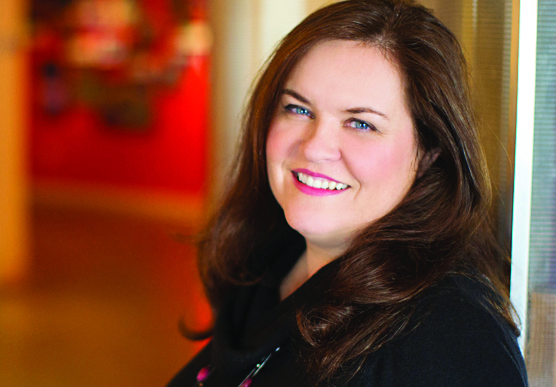The Art of Immersive Theatre
December 15, 2016

A 16th-century Chinese kingdom ruled by a mischievous monkey. An Inca-cursed, fire-breathing temple harboring a legendary treasure. The hidden chambers of Hogwarts School of Witchcraft and Wizardry. These are just a few of the imaginative worlds that Kelly Ryner has helped animate for audiences worldwide.
As a teenager, Ryner had already mapped out her career. “I wanted to be a scenic artist and art director for children’s films,” she says. “I wanted to work for Steven Spielberg. I wanted to do the next big, immersive fantasy film.”
Ryner chose Virginia Tech because its theatre program was the only one that told her what she could do rather than what she couldn’t. Her professors helped her tailor her curriculum and even created several specialty courses just because she requested them.
After graduating with a theatre degree in 1988, Ryner found her true calling in the world of themed entertainment. She started as a scenic artist for Disney Studios and Universal Studios and eventually worked as an in-field art director on a range of projects worldwide.
In 2001, she became the first employee of Thinkwell, an international design and production firm specializing in location-based entertainment. There she worked on such projects as the Warner Bros. Studio Tour London: The Making of Harry Potter, an immersive experience that allows visitors to explore the magic of dozens of original sets and hundreds of authentic props from all eight films.
One of her most memorable projects was art directing the sculpture and painting for the special effects show of Templo del Fuego—Temple of Fire—at Universal’s PortAventura theme park in Spain. “From an art direction standpoint, not only was it spectacular in scale,” she says, “but it was stunning in its craftsmanship.”
Now, as president of Thinkwell Asia in Beijing, Ryner is charged with building a satellite design studio and creating a range of dramatic, content-rich attractions in China. For those projects, she’ll use the Thinkwell formula of seamlessly weaving together the arts and technology.
“The arts and technology blend and make each other stronger,” Ryner says. “When put together just right, magic happens. Every day at Virginia Tech, we were leveraging technology to tell a story. We do the same at Thinkwell—just on a much bigger stage.”
Written by Paula Byron


